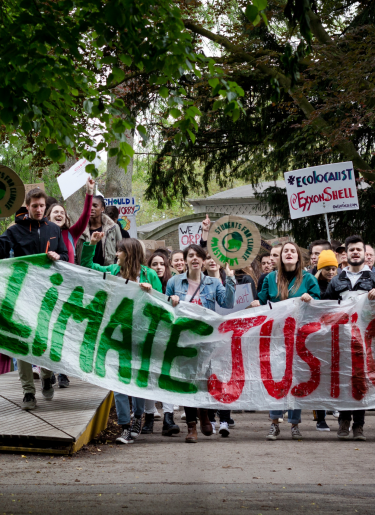
Background to the Global Climate Strike
Young people across the globe have been taking part in ‘school strikes’ for months. In September, adults are being called to join in. The purpose of the global climate strike is to demand immediate action on climate change and an end to the use of fossil fuels.
While employers may support the strike’s objective, it could have significant practical and financial repercussions for them.
Many employers in the UK may be unfamiliar with the laws on striking. As the Certification Officer (the statutory regulator of trade unions) recently noted in her Annual Report, trade union membership has continued consistently to fall over the last ten years. Employees across all sectors are nevertheless increasingly seeking to withhold their labour in support of their chosen causes. Recent examples include the ‘Google walkout’ over sexual misconduct allegations and recent calls for a ‘city-wide strike’ in Hong Kong.
Five key questions for employers
The Global Climate Strike will require many UK employers to respond to employees going on strike for the first time. We therefore address five key questions for HR and in-house legal teams below to help them proactively plan and put in place policies for how they will react to the challenges posed to their businesses.
1. Do employees have a ‘right to strike’?
Unlike employees in many other countries, UK employees do not have a ‘right to strike’. An employee who withdraws their labour when they are contractually required to work is acting unlawfully. It is for this reason that an employer is under no obligation to pay an employee for that time. However, UK trade unions and employees do, in certain circumstances, enjoy extensive legal protections in respect of inducing or taking industrial action.
2. Do employees enjoy protections if they participate in the Global Climate Strike?
Employees only enjoy all of the extensive protections in connection with going on strike if:
Many trade unions, such as the University and College Union, support the Global Climate Strike. However, as Unison Scotland has noted, trade unions cannot call for strike action as no trade dispute exists between the employees they would be inducing to strike and those employees’ employers. Unions are therefore very unlikely to call for strike action as it would leave them exposed to financial penalties of up to GBP 250,000.
Employees who withdraw their labour to participate in the Global Climate Strike will therefore enjoy no special protections. From a strictly legal perspective, their strike will amount to nothing more than an unauthorised absence from work.
3. What are the legal consequences if employees take unauthorised absences from work?
An unauthorised absence from work amounts to misconduct. This means that, in addition to not paying the employees for the time that they are absent, employers could take disciplinary action. Employees’ continuity of service could also be affected in certain circumstances.
Employers should nevertheless consider wider labour relations and reputational issues before acting. Withholding pay is likely to be considered as a reasonable response against employees who withdraw their labour. However, disciplinary action may be perceived as an overreaction, especially if the employer’s approach to corporate social responsibility is to commit to an environmentally sustainable business model.
4. Can employees take annual leave to attend the Global Climate Strike?
Employees are generally free to use their annual leave as they wish. However, they are almost always required to obtain prior approval for their annual leave and employees do not generally have a legal right to take leave on dates of their choosing. Employers may therefore reject leave requests if so many staff wish to be absent that their operations would be unacceptably affected.
5. Can employers encourage their employees to take part in the Global Climate Strike?
Yes. Employers may encourage their employees to take part in events taking place as part of the Global Climate Strike. For example, 32 major creative agencies in the UK and across the world have signed an open letter encouraging their employees to ‘Create and Strike’ and committing to giving them time off. However, employers must also respect that some employees may not want to participate and should not be treated less favourably because of that.


